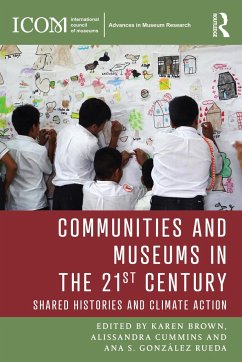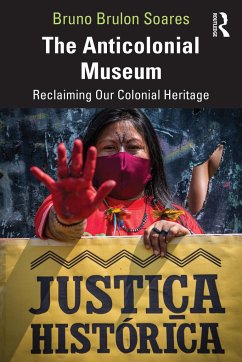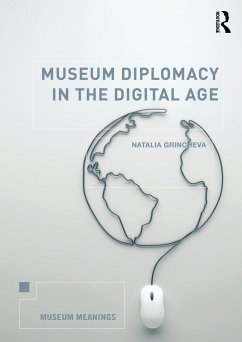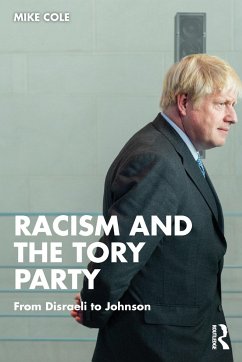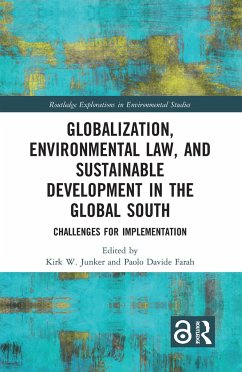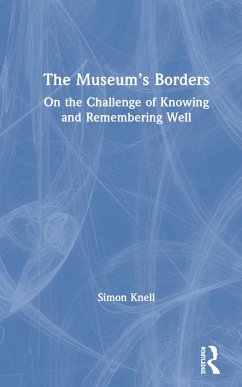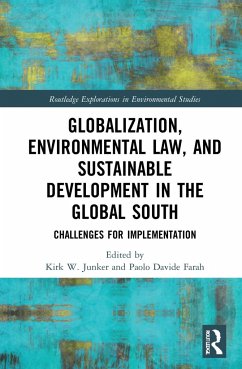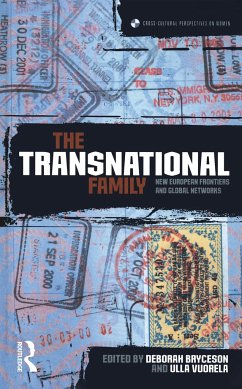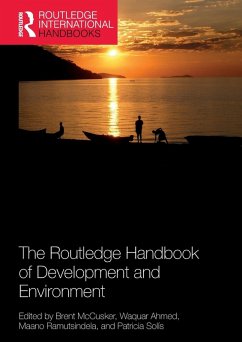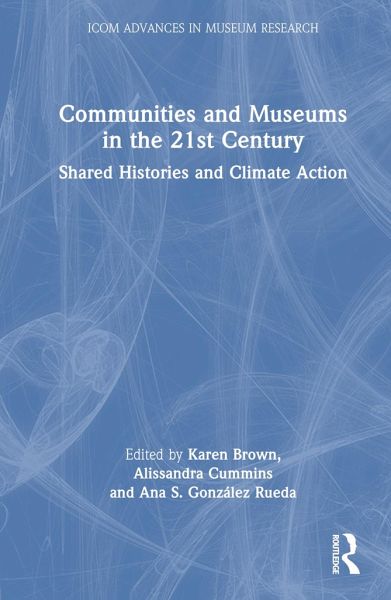
Communities and Museums in the 21st Century
Shared Histories and Climate Action
Herausgegeben: Brown, Karen; Cummins, Alissandra; González Rueda, Ana S.
Versandkostenfrei!
Versandfertig in 6-10 Tagen
154,99 €
inkl. MwSt.

PAYBACK Punkte
77 °P sammeln!
Communities and Museums in the 21st Century brings together innovative, multidisciplinary perspectives on contemporary museology and participatory museum practice that contribute to wider debates on museum communities, heritage, and sustainability.Set within the context of globalisation and decolonisation, this book draws upon bi-regional research that will enrich our understanding of the complex relationships between Europe, Latin America and the Caribbean through museum studies and practice. Chapters reflect upon the role of museums in defining community identities; the importance of young p...
Communities and Museums in the 21st Century brings together innovative, multidisciplinary perspectives on contemporary museology and participatory museum practice that contribute to wider debates on museum communities, heritage, and sustainability.
Set within the context of globalisation and decolonisation, this book draws upon bi-regional research that will enrich our understanding of the complex relationships between Europe, Latin America and the Caribbean through museum studies and practice. Chapters reflect upon the role of museums in defining community identities; the importance of young people's participation and intergenerational work for sustainability; the role of museums in local development; and community-based museums and climate change. Contributors examine these issues through the lens of museum partnerships and practices, as well as testing the continued relevance of the notion of 'integral museum' and its relatives in the form of ecomuseums. With its focus on regional museums in Latin America and Caribbean, this book highlights how the case studies promote greater intercultural dialogue, global understanding and social cohesion. It also demonstrates how the methodology can be adapted to other communities who are facing the perils of climate change and unsustainable forms of development.
Communities and Museums in the 21st Century proposes creative and sustainable strategies relevant to a globalised future. With its focus on global societal challenges, this book will appeal to museologists and museum practitioners, as well as those working in heritage studies, cultural studies, memory studies, art history, gender studies, and sustainable development.
The Open Access version of this book, available at http://www.taylorfrancis.com, has been made available under a Creative Commons (CC-BY-NC-ND) 4.0 license
Set within the context of globalisation and decolonisation, this book draws upon bi-regional research that will enrich our understanding of the complex relationships between Europe, Latin America and the Caribbean through museum studies and practice. Chapters reflect upon the role of museums in defining community identities; the importance of young people's participation and intergenerational work for sustainability; the role of museums in local development; and community-based museums and climate change. Contributors examine these issues through the lens of museum partnerships and practices, as well as testing the continued relevance of the notion of 'integral museum' and its relatives in the form of ecomuseums. With its focus on regional museums in Latin America and Caribbean, this book highlights how the case studies promote greater intercultural dialogue, global understanding and social cohesion. It also demonstrates how the methodology can be adapted to other communities who are facing the perils of climate change and unsustainable forms of development.
Communities and Museums in the 21st Century proposes creative and sustainable strategies relevant to a globalised future. With its focus on global societal challenges, this book will appeal to museologists and museum practitioners, as well as those working in heritage studies, cultural studies, memory studies, art history, gender studies, and sustainable development.
The Open Access version of this book, available at http://www.taylorfrancis.com, has been made available under a Creative Commons (CC-BY-NC-ND) 4.0 license



